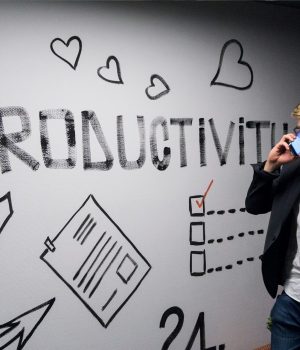Innovation is key in our society.
Organizations that are able to bring innovative products to the market can beat their competitors, can convince their customers to buy and can create value in our highly competitive and fast-changing world.
A surprising way how feedback can save innovation
Organizations that don’t only innovate with their products, but also in the way they arrange their work or communication with costumers, are even more successful.
They are not only competitive on the customer market but also on the job market.
Why?
Because it is exactly the type of company people want to work for these days.
Innovation = learning
It means setting a hypothesis, testing it, failing, learning and trying again. Fail again, learn again and try again. Until it works!
And if it works, be aware that there is always a need for growth, so there are no legitimate reasons to stop testing new hypotheses.
It is a continuous prototyping reality. As a business owner or manager, you need to understand that events, processes, things, people, opinions, knowledge, etc. are flexible and they need to be treated that way.
It is a mindset. A mindset that you want (not need!) the people working in your organization to have.
And luckily for you, the mindset is fully coachable.
You need to share two basic skills. You want your coworkers to be able to give feedback and to receive feedback.
How to train these skills? Well, you can start now. Here is how:
GIVe FEEDBACK
It is important to describe a very concrete situation (so don’t say things like: you always… or you never … ).
It is important to describe behaviour or other things the feedback receiver can actually change.
And don’t give the behaviour any value (for example, your presentation skills are bad, you are not able to bring a story to your audience); instead focus on what the impact of the behaviour is on you. How it made you feel and why you don’t like that (for example: ‘when you presented your work, it was hard for me to follow your story because you were talking so quick and unstructured. It made me feel a bit dumb’).
Last but not least, check whether the feedback receiver understood your feedback in a correct way. You can also suggest alternative ways to behave if you are sure about them.
The most important motivation for following these rules is that if you apply the rules in a correct way, you actually have a chance of getting your message across.
The feedback receiver won’t react emotionally if you respectfully explain your truth about their behaviour without giving it a (negative) connotation. And you actually have a chance to trigger a change in behaviour in the right direction.
Once the feedback receiver has an emotional reaction because you attack him/her (remember: your presentation skills are bad…), there is only a very small chance that your feedback will actually be understood.
RECEIVe FEEDBACK
Consider feedback as a gift. You receive it and unpack it. You might be happy with it or maybe this gift is not at all what you expected or wanted. Maybe you already got a similar gift in the past. It is ok not to like the gift, but you should kindly and openly receive it. The feedback giver is going through a lot of trouble giving you this gift and by doing it shows that he/she cares about you. Respect this.
And then, if you want to, do something with the feedback. Learn from it, test new behaviours, and try out a new way of approaching a project or situation. Make a new hypothesis, ask for help, find inspiration, learn, and grow. Learning to handle feedback and to use it is a potential for growth might be the single most important skill of every person in an innovative organization.
Both skills are equally important. And a lot of practice is needed to master them.
Feel free to ask someone for feedback!
If you train these skills yourself and encourage every other person in your organisation to do the same, you will create a feedback norm. By setting respectfully giving and receiving feedback as a norm in your organization, you will create a safe learning atmosphere.
You and your coworkers will create a learning mindset that allows for testing out new things and that allows making mistakes.
Mistakes are the most fruitful building blocks OF new ideas
As a bonus, it will also set the stage for respectful and open interaction with each other and a trustful organization culture where everybody can be herself/himself and function at his/her best level!
Maybe you want to give me a feedback in relation to my article? Or maybe you wish to share with me your story? I would be happy to learn what you think.
For more business and entrepreneurship tips, check our entrepreneurship section and subscribe to our weekly newsletters.






